Table of Contents
Guide
Page List
Dedication
This book is for Josh
and
Isabela, Sofia, Brinley, and Kayla
and
Bill, Emily, Syman, Katie, Marshall, Hartley, Becca,
Tori, Wesley, David, Ryan, Parker, Kate, Meg,
Kristopher, Austin, Kacey, Tucker, Miranda
and
Archer, Charlie, Lydia, Sutton, Satie, Julianne, James, Lela,
Branch, Sawyer, Levi, Annabelle, Henry, Phoebe, Laney,
Ella Kate, Joe, Maryanne, Finley, Davis, Henry, Mimi, Cash, Lily
and
all other kids who want to learn to write right
without being bored to death in the process.
Copyright 2021, 2016, 2011, 2006, 1997 by Rebecca Elliott
All rights reserved under International and Pan-American Copyright Conventions. By payment of the required fees, you have been granted the non-exclusive, non-transferable right to access and read the text of this eBook on screen. No part of this text may be reproduced, transmitted, downloaded, decompiled, reverse engineered, or stored in or introduced into any information storage and retrieval system, in any form or by any means, whether electronic or mechanical, now known or hereinafter invented, without the express written permission of the publisher.
Published by Kaplan, Inc., d/b/a Barrons Educational Series
750 Third Avenue
New York, NY 10017
www.barronseduc.com
ISBN: 978-1-5062-6811-8
10 9 8 7 6 5 4 3 2 1
Barrons Educational Series, Inc. print books are available at special quantity discounts to use for sales promotions, employee premiums, or educational purposes. For more information or to purchase books, please call the Simon & Schuster special sales department at 866-506-1949.
Painless Grammar is a user-friendly, action-packed, fun-filled book for those who want to learn to write well without atrophying their brains from boredom.
I hope this book will help you write better and help students get higher grades in language arts and English class, but much more importantly, I hope it will help unleash your creativity, set your imagination on fire, and show you the pleasure that can come from expressing your ideas with clarity and style.
Painless Icons and Features
This book is designed with several unique features to help make learning grammar easy.
 PAINLESS TIP
PAINLESS TIP
You will see Painless Tips throughout the book. These include helpful tips, hints, and strategies on the surrounding topics.
 CAUTIONMajor Mistake Territory!
CAUTIONMajor Mistake Territory!
Caution boxes will help you avoid common pitfalls or mistakes. Be sure to read them carefully.
 REMINDER
REMINDER
Reminders will call out information that is important to remember. Each reminder will relate to the current chapter or will reference key information you learned in a previous chapter.
 BRAIN TICKLERS
BRAIN TICKLERS
There are Brain Ticklers throughout each chapter in the book. These quizzes are designed to make sure you understand what youve just learned and to test your progress as you move forward in the chapter. Complete all the Brain Ticklers and check your answers. If you get any wrong, make sure to go back and review the topics associated with the questions you missed.
EXAMPLES
There are examples throughout the book to help you identify sentences that are Wrong and Right, Weak and Better, and more to help you grasp grammar rules and to improve your writing.
SIDEBARS
These shaded boxes contain extra information that relates to the surrounding topics. Sidebars can include advanced topics, detailed examples, and more to help keep grammar interesting and painless.
Every player on a football team has a specific role to play in the game. The quarterback has one job, the linebackers have another job, and the tackles have yet another job. Similarly, every instrument in the school band has its own unique sound, and the music you hear is created by all those different instruments blending together and working together.
Just as the players on the football team or the instruments in the band have their specific jobs, every word in a sentence has its particular job and plays its special role. There are eight parts of speech, and every word in every sentence is playing one of those eight roles.
The eight parts of speech are nouns, pronouns, verbs, adjectives, adverbs, conjunctions, prepositions, and interjections.
Many words almost always play one particular role, but sometimes they can switch roles. The word boy, for example, is almost always a noun. However, if you say, Oh boy, what lousy weather, oh boy is an interjection. The word foot is almost always a noun, but it plays the role of an adjective if youre talking about a foot-long sandwich. The word fly is a noun if youre talking about a buzzing insect, but its a verb if youre talking about flying in an airplane. Knowing what part of speech a word is playing helps us understand how sentences are made and also helps us avoid some very common, and sometimes very funny, goofs.
Lets explore the parts of speech and some of the mistakes that students often make with them.
What is a noun?
It is a word that names a person, place, thing, idea, or quality.
| Person | boy, teacher, Josh, doctor, mother |
| Place | Miami, city, countryside, United States |
| Thing | house, tree, horse, bicycle, ice cream |
| Idea | democracy, truth, illusion, fantasy |
| Quality | beauty, caring, boredom, silliness |
We use nouns all the time when we write e-mails to friends or papers for class . (For example , all these underlined words are nouns .) In the next few pages , well look at some mistakes that students frequently make with nouns and Ill give you pointers on how to avoid making those mistakes when you write.
When to capitalize nouns
Names of specific people
CAPS:
Tucker, Lola, Juanita, Denzel, the Stevens family, the Joneses
NO CAPS:
family, boy, girl, sister, cousin
(These are general groups or categories, not specific people.)
What about mom and dad? Capitalize them when youre calling your parents name but not when you refer to my mom or my dad.
CAPS:
Hi, Mom! Welcome home, Dad.
NO CAPS:
My father and my mother are busy. Could your mom or your dad drive us to the mall?
Days of the week, months, and holidays, but not seasons
CAPS:
Monday, December, Passover, Easter
NO CAPS:
autumn, fall, spring, winter, summer
Ranks and titles, but only when used right before a particular persons name
CAPS:
This is Doctor Smith, this is Aunt Anne, and that man is General Bradshaw.
NO CAPS:
That man is my doctor, that woman is my aunt, and that man is a general in the army.
CAPS AND NO CAPS:
Our beloved Principal Valentine announced that all teachers and principals in our city get next week off!
What about the president? Many people think the word president (or pope or

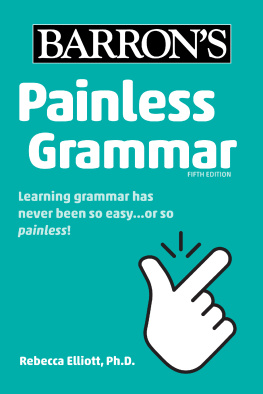


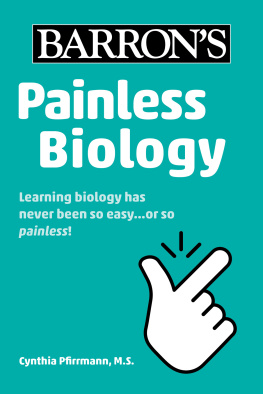
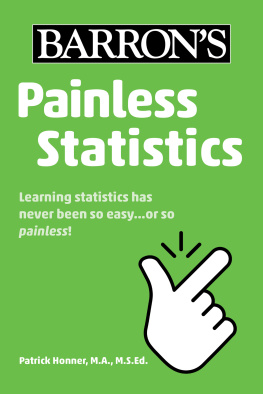
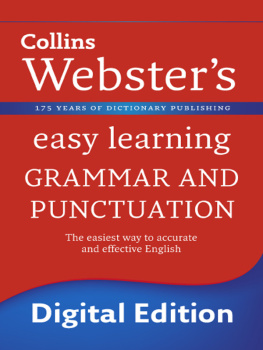
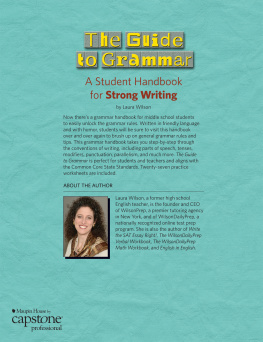

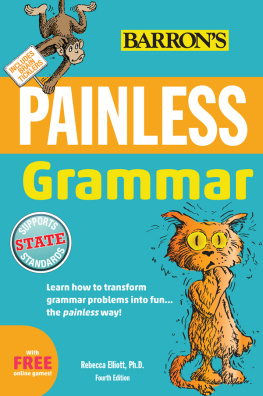
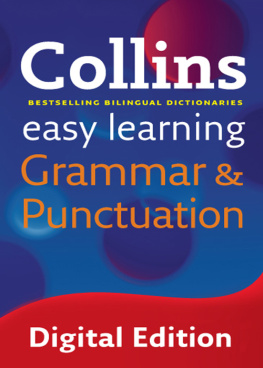
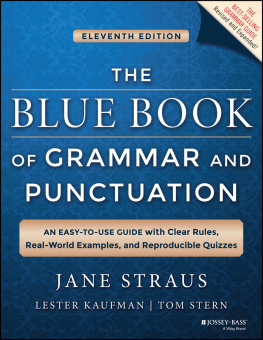
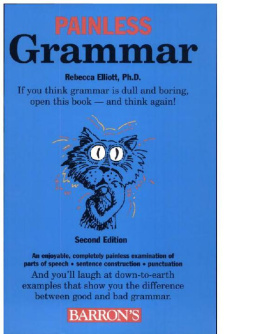

 PAINLESS TIP
PAINLESS TIP CAUTIONMajor Mistake Territory!
CAUTIONMajor Mistake Territory! REMINDER
REMINDER BRAIN TICKLERS
BRAIN TICKLERS